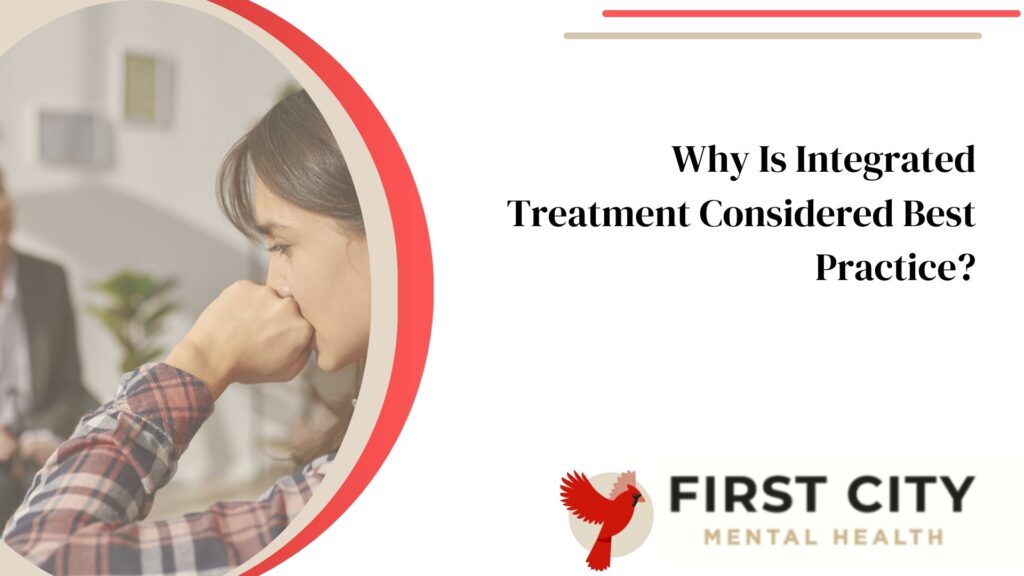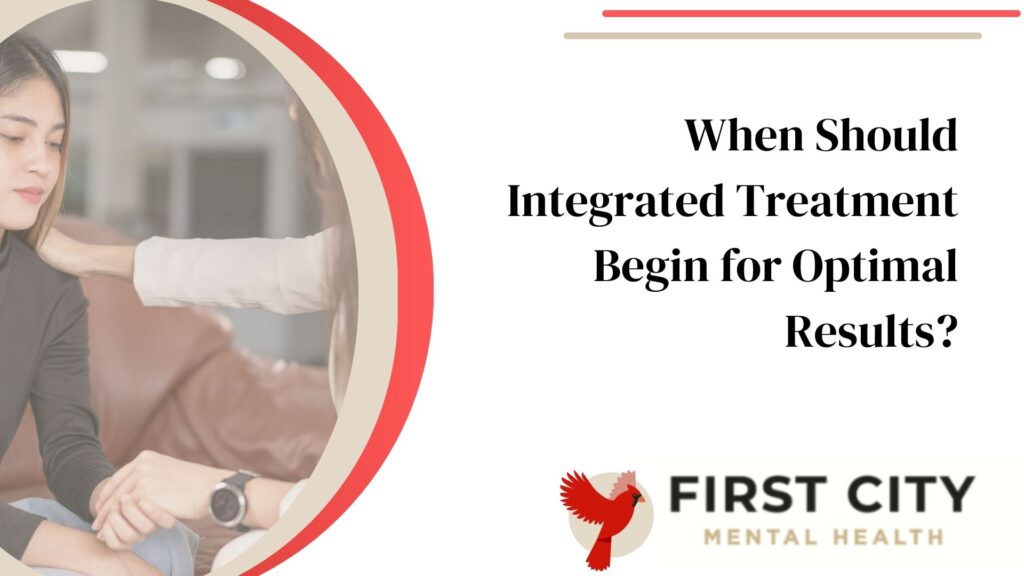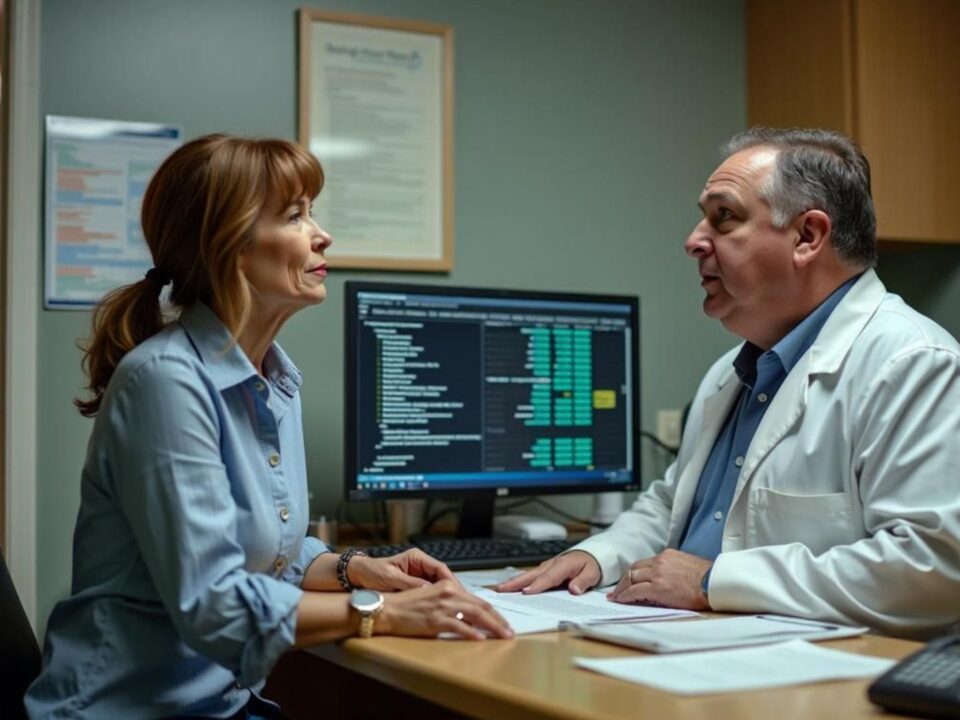
Why Is Co-occurring Disorders Treatment Different from Other Conditions?
January 21, 2025
When Should You Seek Help for Co-Occurring Disorders Treatment?
January 21, 2025Living with both a mental health issue and a substance use disorder can feel overwhelming. Many people facing these challenges struggle to find effective co-occurring disorders treatment that addresses both problems simultaneously.
Integrated treatment for co-occurring disorders combines mental health care and addiction therapy into one cohesive plan. This approach is considered the best practice because it tackles both issues, increasing the chance of successful recovery.
This article will explain why integrated treatments work better than traditional methods. You’ll also learn when to start treatment and what makes up an effective plan for mental health disorders. Stay with us to discover how integrated co-occurring disorder treatment can make a big difference.
Key Takeaways
- Integrated treatment combines mental health care and addiction therapy in one plan, enhancing recovery success.
- A personalized assessment and individualized plans address each patient’s needs for better outcomes.
- Early intervention leads to improved results by preventing the worsening of both mental health and substance use disorders.
- Techniques include medication, psychotherapy, support groups, self-care practices, and alternative therapies like art therapy.
- Patient engagement is crucial; active participation ensures better treatment adherence and longer-lasting improvements.
What Defines Integrated for Co-Occurring Disorders Treatment?
Integrated treatment for co-occurring disorders targets both mental health and substance abuse use issues at once. Plans often include medication, psychotherapy, counseling, support groups, and lifestyle changes.
This approach tailors care to each person for co-occurring disorders treatment in Kokomo, Indiana.
Collaboration with qualified mental health professionals is essential. The main goal is to boost overall well-being and functionality. For example, a Kokomo, Indiana program uses this method effectively by personalizing care plans.
This comprehensive strategy helps people manage both conditions better than if treated separately by the mental health services administration.
Why Is Integrated Treatment Considered Best Practice?

Combining mental illness and substance use treatments in one plan is effective. Treating both conditions at the same time addresses complex needs better. Integrated co occurring disorders treatment in Kokomo, Indiana, helps those with dual diagnoses improve their lives.
This approach recognizes how these disorders connect and with environmental factors.
Collaboration among professionals ensures holistic care for patients. Early diagnosis allows for a smoother process, improving overall well-being quickly. Integrated treatments make things simpler by offering support from various specialists, enhancing effectiveness further.
How Do Integrated Approaches Differ from Traditional Treatments?
Integrated approaches treat mental health and substance use disorders together. Traditional treatments usually handle one condition at a time. Patients often have separate plans and providers for each issue, which is a conventional method.
Integrated treatment for co-occurring disorders combines medication, therapy, support groups, and lifestyle changes in a single plan. This helps address the interconnectedness of both conditions. Professionals work together to provide coordinated care.
Integrated methods show better results with reduced substance usage and improved mental health.
When Should Integrated Treatment Begin for Optimal Results?

Transitioning from how integrated approaches differ from traditional treatments, the timing for beginning integrated treatment for co-occurring disorders becomes crucial. Starting early is essential. Initiating treatment when signs of co-occurring disorders appear leads to better outcomes.
Early intervention can halt the progression of addictive behaviors and manage mood disorders effectively. A timely start prevents symptoms from becoming severe. Individualized plans are critical at this stage to address each person fully.
Act quickly when seeking adult co-occurring disorders treatment since delays can worsen conditions over time. Early professional help makes a significant difference in preventing long-term complications and fostering recovery success.
What Are the Core Components of an Effective Integrated Treatment Plan?
Starting co-occurring disorders treatment centers early boosts the chance of success. A solid integrated treatment plan for co-occurring disorders includes several crucial components.
- Personalized Assessments: Each patient gets a customized evaluation to identify specific needs and conditions.
- Medication Management: Doctors prescribe medications to manage symptoms effectively and improve daily functioning.
- Psychotherapy Sessions: Cognitive-behavioral therapy (C.B.T.) helps patients manage symptoms and develop healthy coping strategies.
- Self-Care Practices: Patients are encouraged to adopt routines that promote mental well-being, such as exercise and proper sleep.
- Support Groups: Peer groups provide emotional support and practical advice from others with similar experiences.
- Alternative Therapies: Techniques like art therapy and meditation complement traditional treatments, offering additional ways to cope and heal.
Effective co-occurring disorder treatment requires these key elements to work together for optimal outcomes.
How Do Integrated Treatments Address Both Mental and Substance Use Disorders?
Integrated treatments tackle both mental and substance use disorders at the same time. These methods provide personalized care using psychotherapy and medication. By focusing on the root causes, they improve overall functioning.
Counseling plays a big part in this process. Support groups also help people stay on track.
Patients receive coordinated care to manage their challenging conditions better. This strategy means more effective adult co-occurring disorders treatment. Individuals benefit from more extended treatment plans customized to their unique needs.
The goal is to enhance life quality by addressing all aspects of one’s life in integrated co-occurring disorders treatment programs.
Why Patient Engagement Is Critical in Integrated Treatment Success
Patient engagement plays a crucial role in the success of integrated treatment for co-occurring disorders. Active participation from patients leads to better adherence to medication and therapy, resulting in improved outcomes.
Patients who participate in therapy and support groups receive emotional comfort and practical guidance.
A personalized approach that considers individual needs is essential. Patients must take proactive steps to address their mental health issues for successful recovery. Because treatment often requires longer durations, sustained patient engagement becomes even more critical.
What Outcomes to Expect from Integrated Treatment for Co-Occurring Disorders

Integrated treatment of co-occurring disorders often yields positive outcomes. Patients may see improved mental health and better control over substance use. This approach addresses both issues simultaneously, leading to a more balanced life.
Many find their overall quality of life improves as they manage symptoms more effectively. Additionally, medication, psychotherapy, and support groups offer comprehensive care.
Effective integrated treatments also help reduce the severity of medical challenges linked with dual diagnoses. People who undergo this treatment usually need a longer duration compared to those dealing with just one disorder.
But these efforts are worth it; better outcomes include fewer relapses and hospital visits. Personalized plans cater to individual needs for maximum effectiveness in treating co-occurring disorders.
Final Thoughts
Integrated co-occurring disorders treatment program stands out as a powerful solution. This approach tackles both mental health and substance use issues head-on. It combines strategies that are practical and easy to follow.
Readers can see notable improvements when they commit to these methods.
Providing resources is crucial; explore further reading or local programs. Take the first step to a healthier, balanced life today.
F.A.Q.s
What is integrated co-occurring disorders treatment?
Integrated co-occurring disorders treatment addresses both mental health and substance use conditions at the same time, providing a comprehensive approach.
How effective is this type of treatment for co-occurring disorders?
This treatment for co-occurring disorders has shown better outcomes than treating each condition separately. It helps patients manage both issues more effectively.
Are there any specific methods used in the treatment of co-occurring disorders?
Yes, various methods, such as therapy sessions, medication management, and support groups, are often part of the integrated approach to treating these conditions.
Can anyone benefit from integrated co-occurring disorders treatment?
Most people dealing with both mental health and substance use issues can benefit from this combined approach. It’s multiple challenges simultaneously for improved results.






